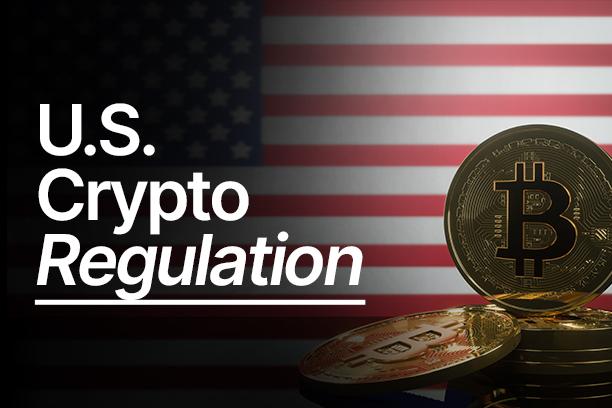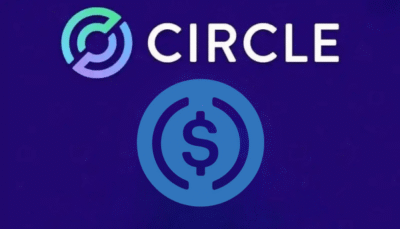The U.S. crypto industry has struggled with regulatory uncertainty for years. Conflicting rules, unclear tax policies, and enforcement actions have made it difficult for investors and businesses to navigate the landscape.
However, recent events, such as the Senate’s decision to overturn Biden-era crypto tax rules and the upcoming White House Crypto Summit, signal a possible shift toward a clearer regulatory framework.
But is this truly a new era of clarity, or is it just political posturing as the 2024 election cycle heats up? On the CoinRock Show, Matthias weighed in, saying:
“Clear regulations will unlock institutional adoption. But if crypto just becomes a campaign talking point, we’ll be stuck in the same cycle of promises and setbacks.“

Shift in U.S. Crypto Regulation
For years, the SEC and CFTC have aggressively pursued crypto firms, taking action against major companies like Binance, Coinbase, and Ripple. Without clear guidelines, many businesses have moved offshore to places like Singapore, the UAE, and Switzerland, where regulations are more favorable.
However, recent events suggest that Washington may be rethinking its approach to digital assets.
Senate Overturns Biden-Era Crypto Tax Rules
The U.S. Senate recently voted to repeal a 2021 tax rule that mandated crypto brokers to report all transactions over $10,000 to the IRS.
This rule faced strong criticism from industry experts, who argued that it was overreaching and impractical, particularly for decentralized platforms that lack traditional “brokers” to track and report such transactions.
The reversal of this regulation signals a potential shift towards lighter-touch oversight, which could foster innovation and make the U.S. a more attractive hub for crypto businesses and investors.
The White House Crypto Summit (March 8, 2024)
The Biden administration is preparing to meet with top crypto executives from Coinbase, Kraken, Chainlink, and MicroStrategy to discuss the future of digital asset regulations.
This high-level meeting is expected to cover critical topics such as stablecoin oversight, taxation policies, and the role of cryptocurrency in national security.
Additionally, some insiders speculate that the U.S. government may introduce a “strategic crypto reserve”, similar to gold reserves, which would signal a long-term commitment to digital assets and potential institutional adoption at the federal level.
Trump’s Pro-Crypto Influence
With Trump’s administration signaling a more crypto-friendly stance, there is growing pressure on Biden and other lawmakers to adopt policies that favor digital assets.
Trump’s close connections to venture capitalists like David Sachs and traditional finance players investing in blockchain indicate that crypto could emerge as a major economic policy issue in the next election, influencing both regulatory direction and voter sentiment.
Developments In U.S. Crypto Regulation
While these recent developments in U.S. crypto regulation appear promising, many remain skeptical, believing that the pro-crypto shift is more about securing votes ahead of the 2024 elections rather than genuine regulatory reform.
With elections approaching, crypto has become a political battleground as both Republicans and Democrats attempt to win over young and tech-savvy voters.
However, history has shown that campaign promises often fade, with past election cycles bringing tougher regulations rather than the pro-crypto policies initially suggested.

Adding to the uncertainty, regulatory divisions persist, with the SEC (led by Gary Gensler) and the CFTC holding conflicting views on whether crypto assets should be classified as securities or commodities.
Despite the Senate’s recent move toward regulatory clarity, many crypto firms still face lawsuits and enforcement actions, indicating that uncertainty remains a major challenge.
Furthermore, previous government hearings on crypto regulation have yielded no concrete action, as key legislative proposals—such as the Responsible Financial Innovation Act—have stalled in Congress, casting doubt on whether meaningful policy changes will actually materialize.
Matthias cautioned against blind optimism, stating:
“Regulators talk about innovation, but actions speak louder than words. If the U.S. truly wants to lead in crypto, it needs to create laws that make sense—not just headlines that sound good.“
What Would True Regulatory Clarity Look Like?
If the U.S. is serious about providing real clarity in crypto regulations, the first step should be defining digital asset classifications.
Clear guidelines on what constitutes a security, commodity, or utility token would help eliminate regulatory conflicts between the SEC and CFTC, ensuring that crypto projects have a well-defined legal framework in which to operate.
A balanced tax policy for crypto investors is also crucial. Instead of aggressive taxation, a simplified and fair tax structure would encourage U.S.-based crypto companies to remain domestic rather than move offshore.
This approach would not only boost the economy but also increase compliance, as businesses would have clearer tax obligations.

Stablecoin regulations must also support industry growth rather than stifle it. USDT (Tether) and USDC (Circle) play a vital role in crypto liquidity and payments, but there is still uncertainty about whether stablecoins should be backed by cash reserves and regulated like banks.
Establishing a well-defined framework would provide investor confidence and reduce risks of regulatory crackdowns.
Finally, the Bybit vs. DAO debate has raised pressing concerns about DeFi accountability. The U.S. must determine whether decentralized platforms should comply with AML/KYC laws or be allowed to operate without oversight.
A clear regulatory stance on DeFi and DAOs will be key to balancing innovation with security while ensuring that bad actors do not exploit decentralized platforms for illicit activities.
Defining Moment for U.S. Crypto Regulation
The coming months will reveal whether the U.S. is truly committed to crypto innovation or if the latest developments are just another political game.
While the Senate’s move and the upcoming White House Crypto Summit are positive signals, there is still significant uncertainty about how regulations will unfold.
For now, investors and businesses should stay informed, cautious, and prepared for potential regulatory shifts. The future of crypto in the U.S. hangs in the balance, and the decisions made today could shape the industry for decades to come.





